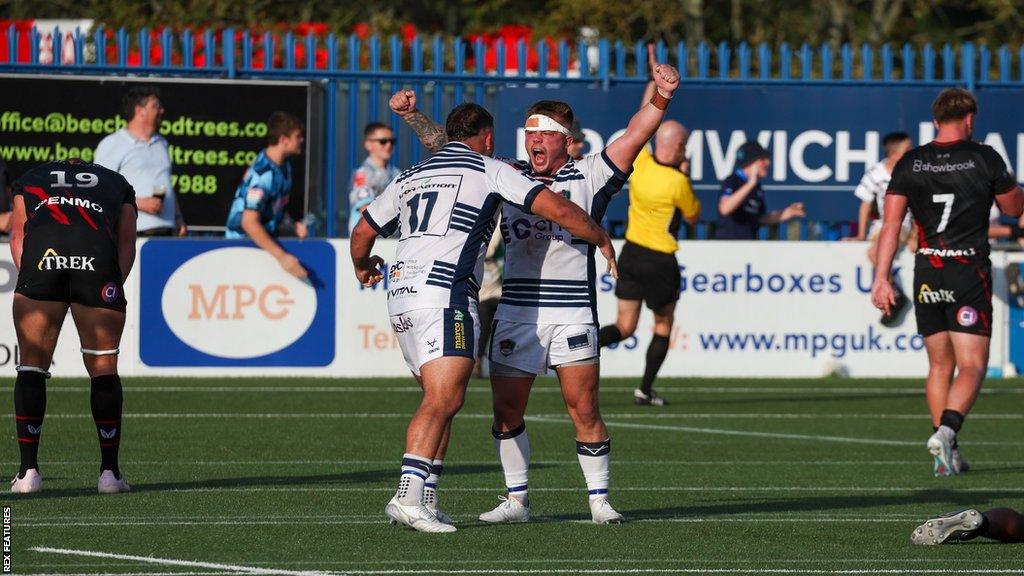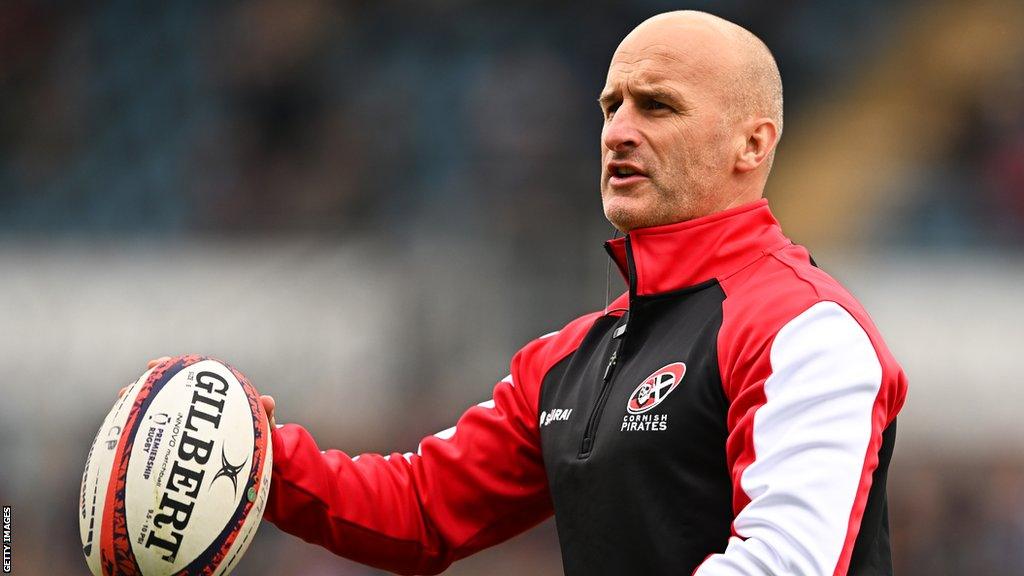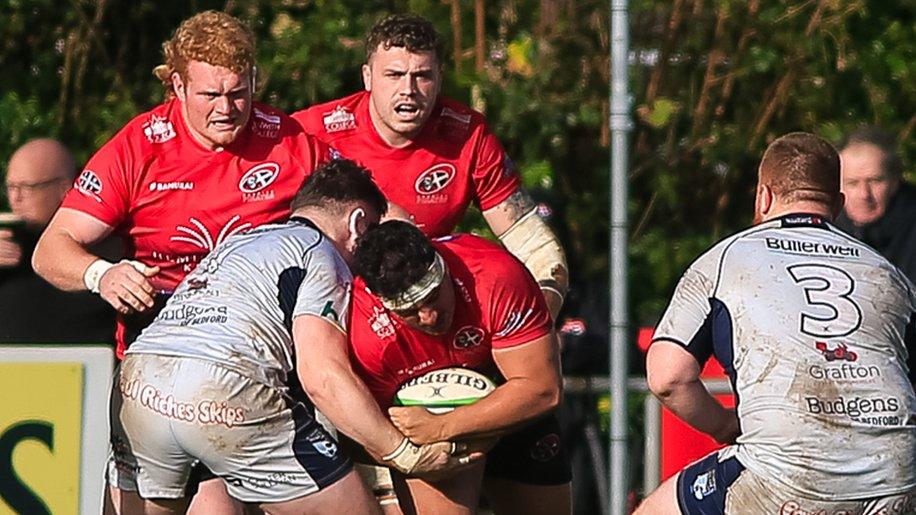RFU 'playing God' with Championship sides over league proposals, says Coventry chief
- Published

Coventry beat reigning Premiership champions Saracens in the Premiership Rugby Cup in early September
Coventry chief executive Nick Johnston says the Rugby Football Union (RFU) is "playing God with people's wellbeing".
Coventry are one of the 11 Championship clubs to reject the RFU's planned franchise-based model which would start in the summer of 2025.
They have concerns over promotion and relegation to and from the league.
Clubs say the RFU has threatened them with "effective relegation to the National Leagues" if they do not sign up for a planned new league.
"They're playing God with people's wellbeing and livelihoods, and they don't seem to care about that," Johnston told BBC CWR.
"They don't seem to care about the effect it has on our employees, who read things in the media that we have to answer with.
"We have to deal with sponsors, partners, community partners, stakeholders on a daily basis, but they wouldn't know what that is because they don't come anywhere near our clubs, they don't come and see 5,000 people having a fantastic day out on Boxing Day.,
"They've never been to our ground, these people who are making the decisions."
In a statement to BBC Sport, the RFU said it had been consulting with Championship clubs for "over a year" and hoped they would "choose to be part of what could become a more thriving and sustainable second professional tier".
It added: "We have researched and produced a commercial strategy and provided the clubs with confirmed funding at at least existing levels for the 2024-25 season, and proposals for increased funding from the 25-26 season."

Gavin Cattle has been joint-head coach of Cornish Pirates since the summer of 2016
Johnston's concerns are echoed by Cornish Pirates joint-head coach Gavin Cattle.
Cattle has been with the Penzance-based side as a player or coach for 18 of the past 20 years, and says the uncertainty surrounding the future of the league - and the clubs within it - is unsettling.
"Our players are on short-term contracts for this season," he told BBC Radio Cornwall.
"The players have got their own story, obviously they buy into the team, but it's really important that if they've got any aspirations in rugby or they want to keep this as a profession, that they need to perform, and that's the bit we can control.
"The other bits in the background, that's to do with the future of the club and that, is it a distraction? Well yes it is, but it's how you prioritise those distractions and just control what you can control really."
Funding has been a key issue for second-tier sides - reigning champions Jersey Reds went into liquidation after ceasing trading in late September.
Championship clubs have seen their central funding slashed from roughly £600,000, a year before the Covid-19 pandemic, to about £160,000.
Johnston says second-tier sides need to be properly funded if they are to provide the platform for up-and-coming players to improve and gain experience, in order to be ready for the top flight.
"We want to work with a whole game solution, from the bottom of the game to the top of the game.
"We're not asking to be bankrolled, we want to be funded fairly to deliver a professional league of rugby which will enhance the people involved in those businesses, whether it's administrators, players, physios, referees - so they can grow and become the next generation of stars in the league above, and then for England.
"Even if we wanted to sign up we can't because of the missing detail - player development platform is not agreed, minimum operating standards are not agreed, commercial models are not agreed, the governance is not agreed.
"We can't sign up to this as a business because it puts us at risk."
Related topics
- Published17 November 2023
